By: Amber Robertson, Featuring: Lubna Abura
Getting started
Lubna Lulu Abura, also known to friends and fans as Lulu, calls herself an “accidental baker.” When asked if she has always been great in the kitchen, she laughs before quickly setting us straight with her answer, “Oh gosh, No.”
Starting a business isn’t something Lubna originally set out to do. In fact, what she didn’t realize is that her circumstances were helping to pave a new life path. As a new mother of twins, she was suffering from postpartum depression and was in the midst of a divorce that had left her bankrupt. To distract herself, she would take the twins on long walks to surrounding neighborhood parks, and would often pack snacks which included Goldfish crackers and homemade za’atar sandwiches – pita bread drizzled with extra virgin olive oil and za’atar spice.
By the time they arrived at their destination, the twins would be covered in cracker crumbs and the oil from the sandwiches. Any mother can deal with a mess, but Lubna knew there had to be a cleaner and healthier way for her family to snack while out and about. It wasn’t until one afternoon, while grocery shopping, that she stumbled upon a recipe for “at home, healthy, easy-to-make crackers.” It was the spark that helped light the fire and encouraged her to start baking healthier snacks for her children.
“I started baking that same night,” recalls Lubna. “I put the twins to sleep and baked my life problems away.
Baking provided Lubna with an avenue to cope, and it essentially became her therapeutic outlet. Each night she would bake, sharing photos of the finished product on Snapchat with friends. The crackers were even a hit at the park, as other mothers and their children had opportunities to try them. Her friends began inquiring about orders and eventually the mothers at the park and at school started making requests of their own. From then on, Lubna never looked back.
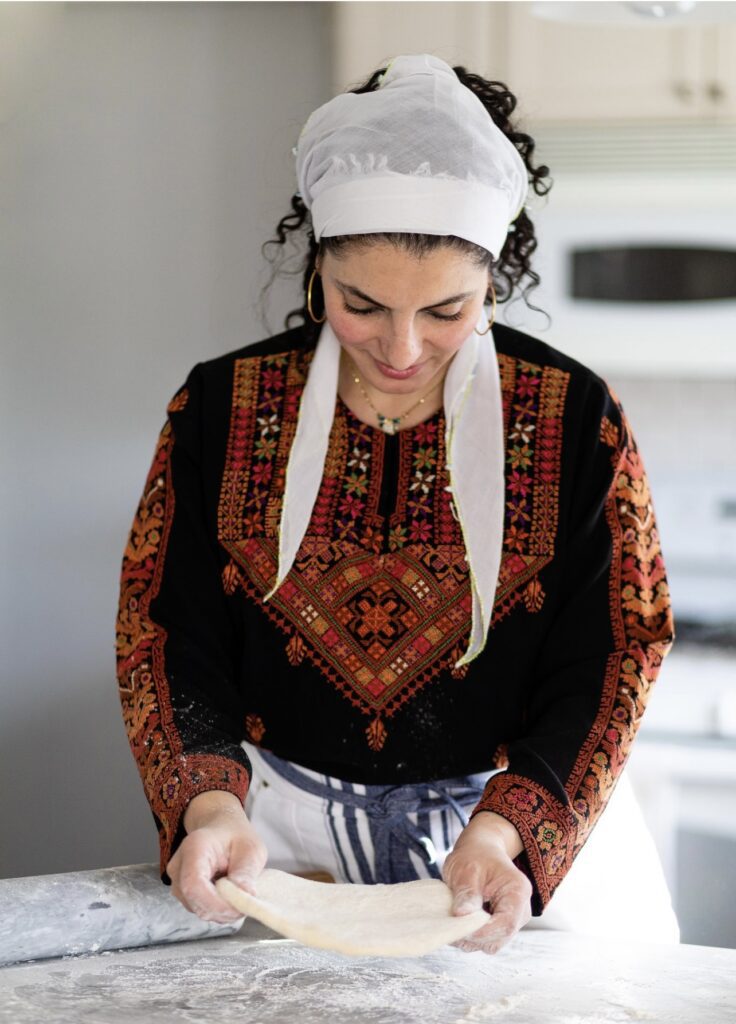
Blending cultures
Both of Lubna’s parents were born in Palestine, her father from Mizra’ Gharbiegh and her mother from Lydd; however, Lubna was raised in Brazil. She credits her grandfather for the opportunity after he decided to leave the country and follow his eldest son to San Paulo, Brazil – one of the few countries that welcomed refugees at that time.
For Lubna, Brazil was the “ultimate childhood spot” and a place where she was exposed to great friends and phenomenal food. Mondays consisted of traditional rice and beans, collard greens, steak and fries – a hearty meal that most Brazilian households started the week with. But being Palestinian, her parents would add a little bit of Palestinian flare and throw in some extra spices. By mid-week, they would switch it up and serve more Arabic dishes, such as stuffed grape leaves or msakhan – a flat bread soaked in olive oil, onion and sumac topped with roasted chicken.
Life was good in Brazil, but during the late 80’s, Lubna’s father relocated the family to New York in an attempt to provide them with a better future in the United States. However, in New York, Lubna and her family experienced a different kind of welcome, and quickly fell victim to the racism and prejudices directed towards Arabs. When friends assumed she was Italian or Greek, she let them think it, often feeling it was safer to keep who she was a secret.
Gone were the days where families sat down together every night to enjoy a relaxing meal. In New York, things were fast-paced, and it didn’t take long for her family to pick up on the convenience of fast food. Things might have been done in a “New York minute,” but with her parent’s persistence, they learned to manage their time and prioritize some family meals, where they incorporated and served a blend of cultural dishes – something they still do to this day
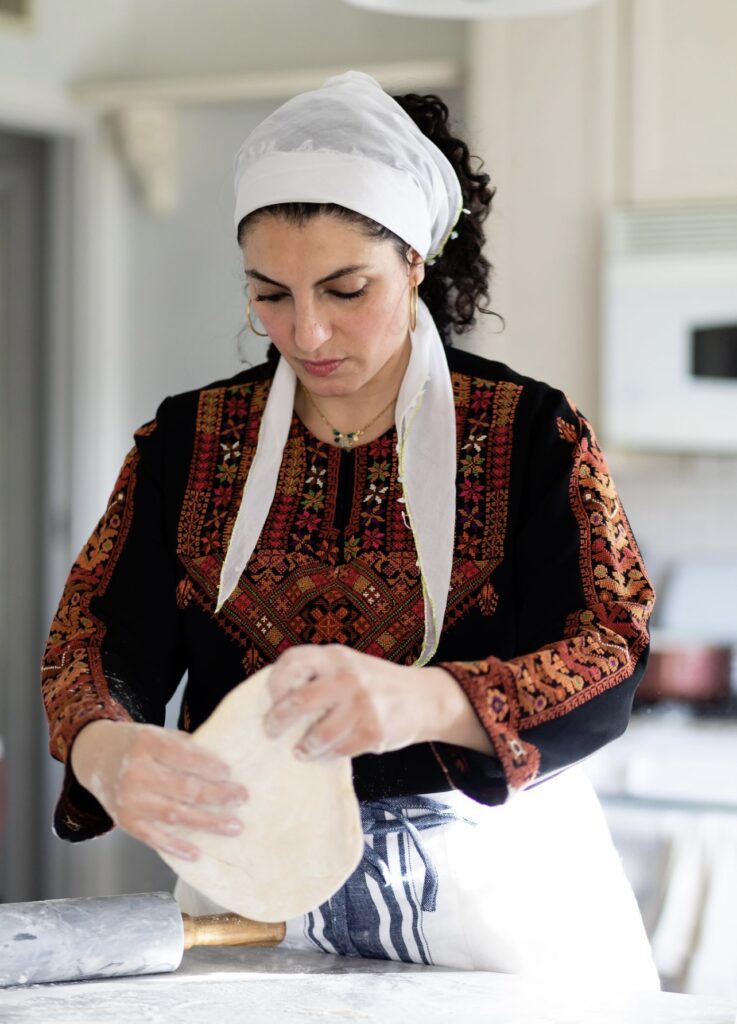
A homemade creation steeped in culture
As a Palestinian-Brazilian, you’ll find Lubna’s identity mixed throughout every bite of her custom creations. Her business, Lulu’s Crackers, blends traditional Palestinian spices and other ingredients into bite-size gourmet crackers and plays off her belief that “food is culture” and that “culture is identity.”
From the spice suitcases her grandmother would bring the family, to witnessing her mom grind and make her own spice mixtures, to eating her family’s recipes that were loaded with a rich blend of spices, it only makes sense that Lubna would also use a lot of spices in her own kitchen.
However, as Lubna started cooking for her own family, she wanted the freedom to experiment and found herself gradually cutting down the spices she would use. She also tried mixing different spices together, some of which she jokingly notes might have baffled her mom. It was a trial and error experiment, and one where she quickly learned that some spices don’t compliment each other.
With Lulu’s Crackers, Lubna wanted to ensure she could preserve some of the flavors of her cultural heritage while also adding an exciting twist to her homemade snacks. Both Arabic and Brazilian cuisines dedicate ample time in the kitchen to ensure flavors meld perfectly, a practice she praises, but living in the U.S. requires a quick, on-the-go approach. Infusing the three cultures would be a challenge, but it is one Lubna was willing to tackle.
“Growing up in a bicultural world, I always felt the pressure of picking one culture over the other,” says Lubna. “And, if I did, I always felt I’d be betraying one culture… I would not be me if I weren’t blessed with the richness of both cultures (Palestinian and Brazilian), topped with NY energy.”
Lulu’s Crackers currently features eight different flavors: Za’atar, Shatta, Dukkah, Parmesan Cheese, Green Olives, Black Olives, Sun-Dried Tomatoes, and Msakhan. This past June, Lubna also released a new flavor called Nabulsiyeh, which is made from Nabulsi cheese, black sesame seeds and fresh, dried za’atar. She is also currently working on developing different flavors, like mixing guava paste and fresh za’atar together, an interesting pairing but one she claims is an explosion of flavors.
When Lubna bakes, she thinks of family, “I think of my aunts, my grandmothers, my mother, and how despite all the suffering, they held tight to culinary treasures, home by home, kitchen by kitchen. They carried that responsibility in their chests because they knew – consciously or not – that these dishes offered comfort and a familiar aroma of home.”
However, the inspiration and the driving force behind Lulu’s Crackers are her twins, shares Lubna, “They taught me to love, they taught me to dream again.”
For Lubna, timing was key, especially as she thinks back as to why she didn’t pursue something like this earlier. 15 years prior to now, Palestinian pantry ingredients would not have been as widely accepted, but with time, things change. Negative associations towards international flavors and cuisines began to soften as restaurants and eateries dabbled in fusion menus, and the popularity of social media and the likes of #foodtok helped bring ethnic cuisines from around the world directly into the homes of millions of viewers.
As Lubna started her cracker creation journey, she felt a responsibility to be an ambassador to help shift the narrative on Palestinian culture and food, noting how they take pride in feeding others. Lubna feels her crackers meet the demands of “quick fix, quick meal” snacks for today’s eaters, with two added benefits – one, the crackers help preserve culinary, rich Palestinian dishes, and two, they are a snack packed with nutritional values and cultural lessons.
“I feel blessed and honored to create flavors that I believe are delicious when combined and have a warm welcoming,” says Lubna. “Food really does bring people together, as it should.”
Create your own customized family cookbook- Shop now
Have more questions? Visit our FAQ section here. Alternatively, you can email us at hello@heirloomproject.co
To get regular updates, follow us on Instagram here
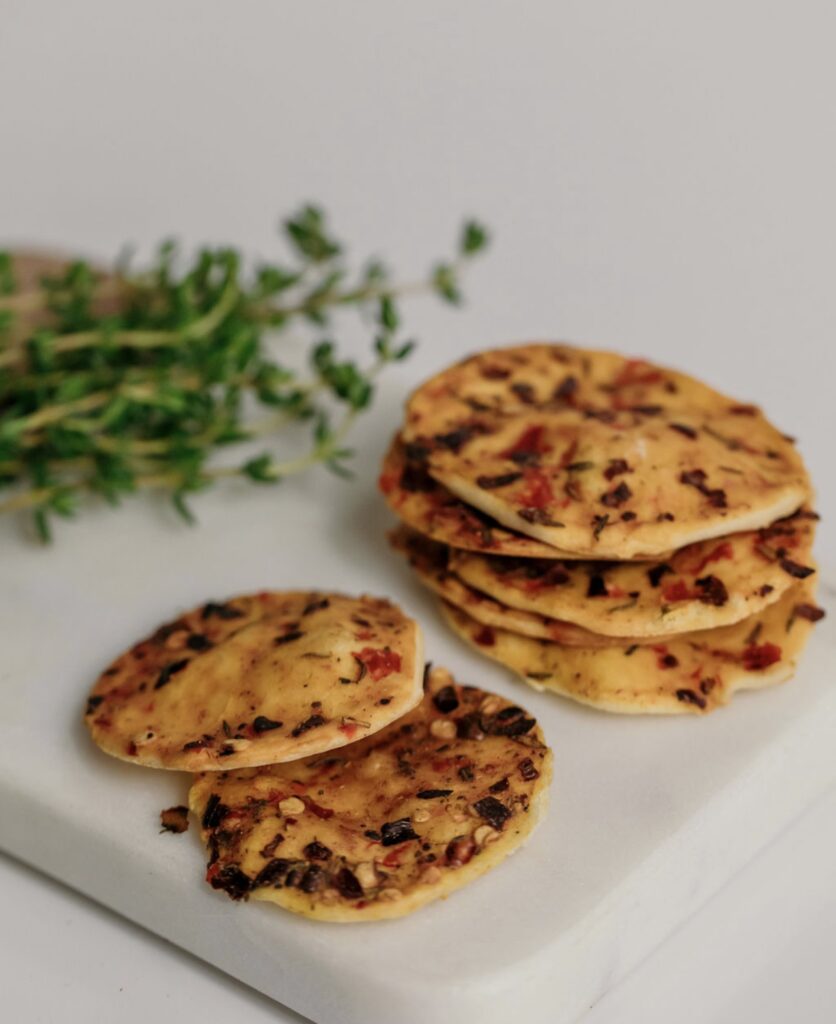

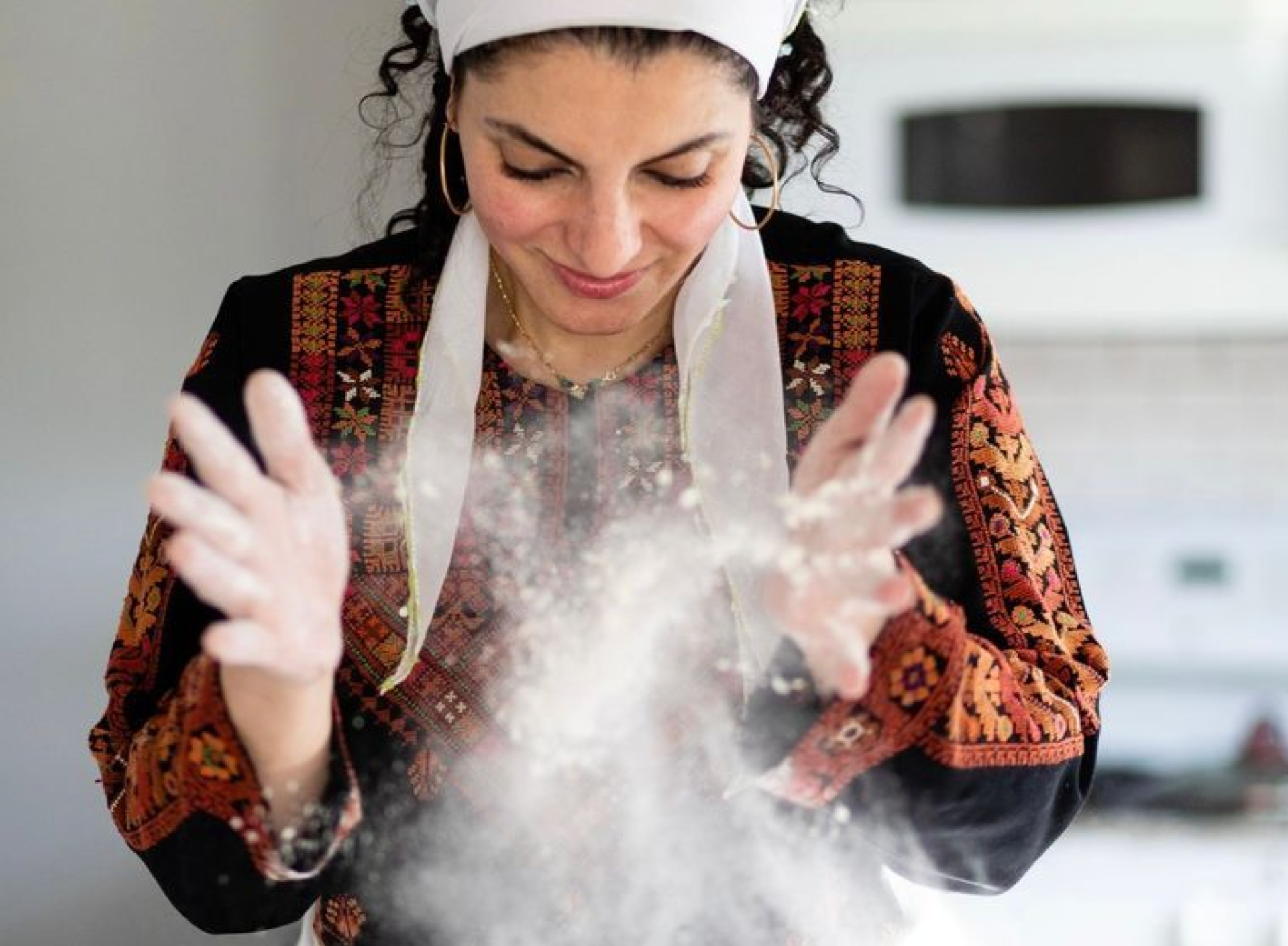

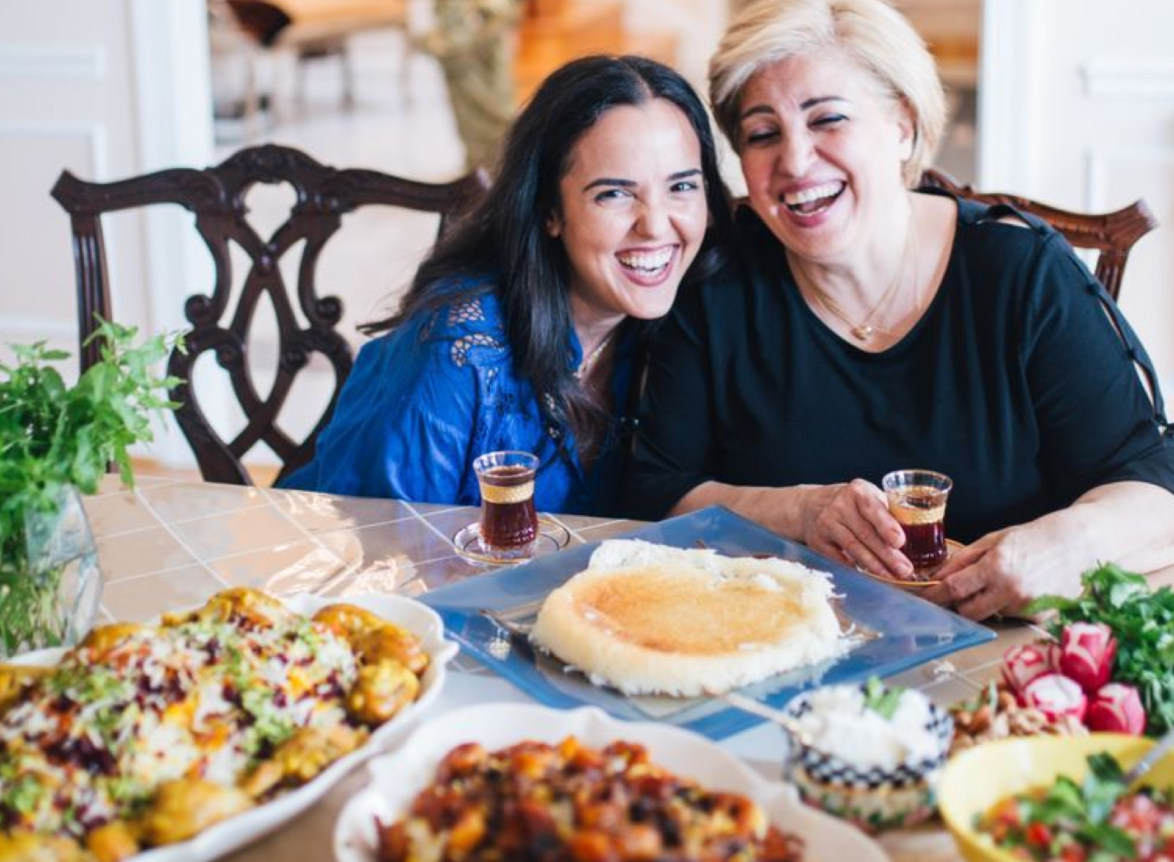
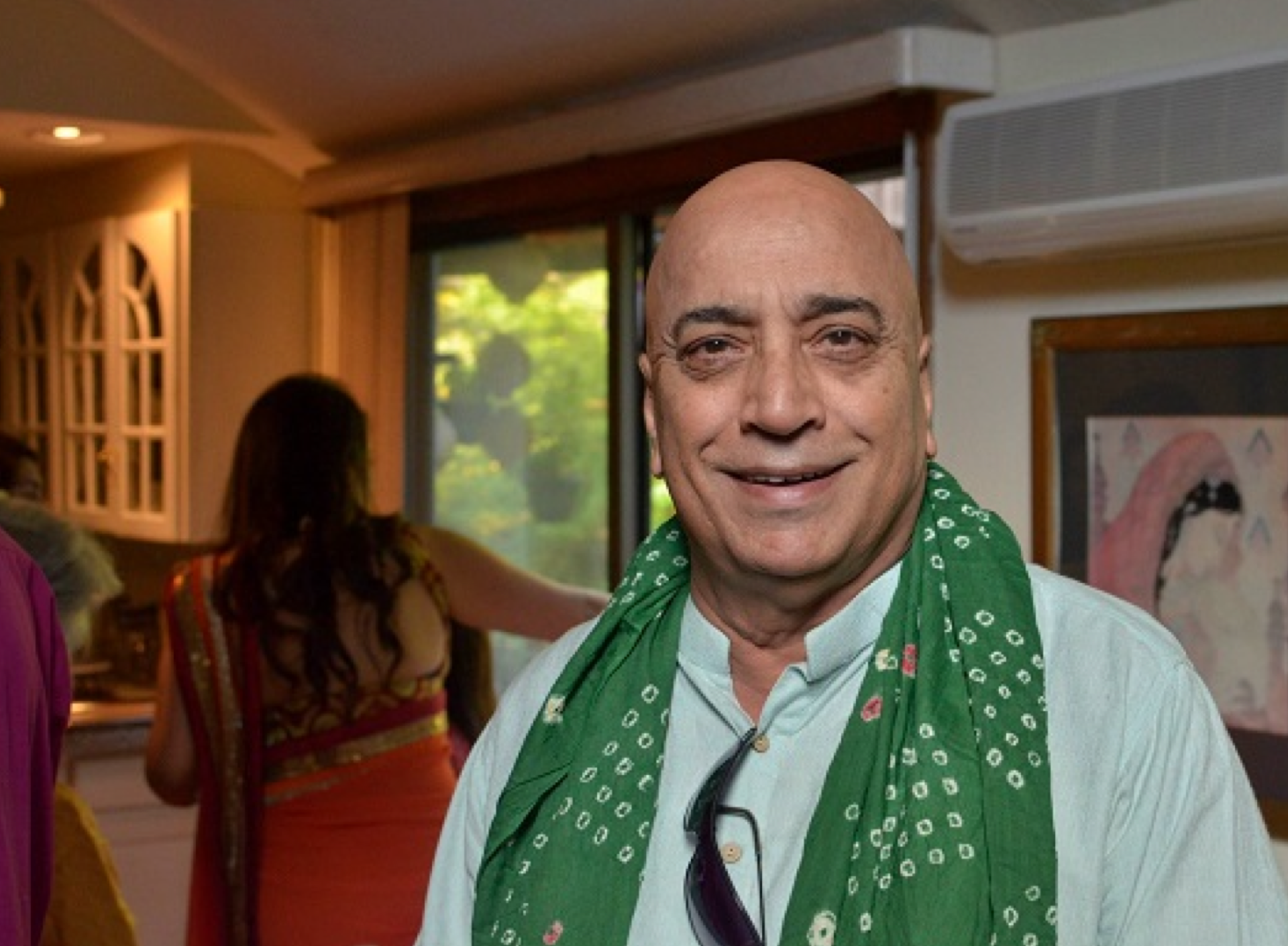


Leave a comment
Your email address will not be published. Required fields are marked *